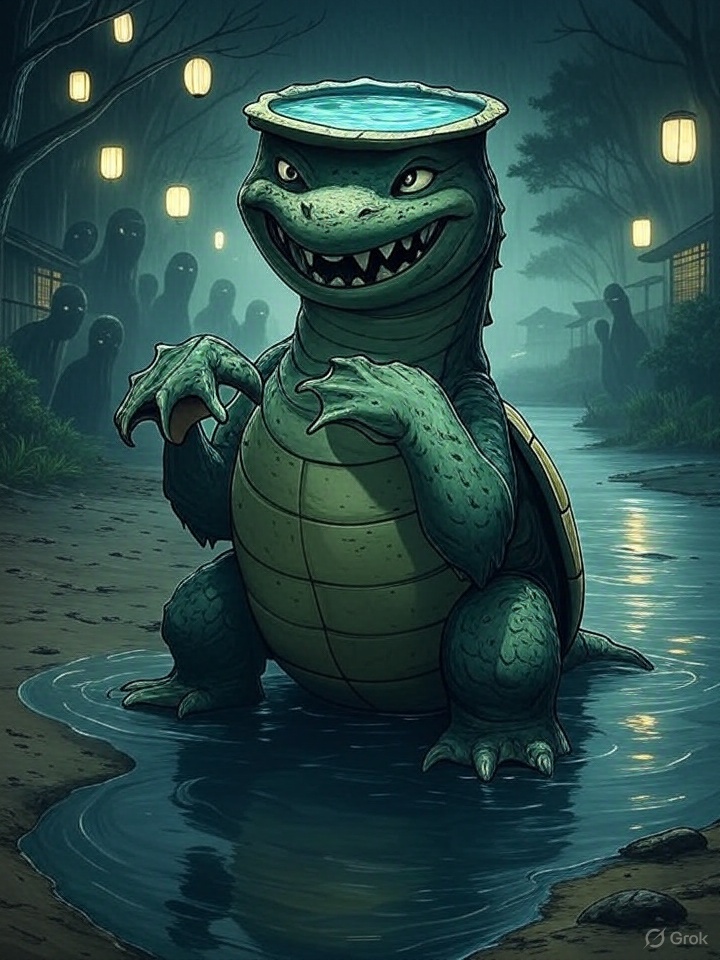Name Meaning
Overview
Kappa (河童) translates to "river child." It is one of the most well-known yokai in Japanese folklore, a creature that dwells in rivers and ponds.
- Ka (河) = river
- Ppa (童) = child or imp (archaic reading)
Origin
- Legends of Kappa date back centuries and are found throughout all regions of Japan.
- It is deeply rooted in Shinto and Buddhist folklore.
- Traditionally used to warn children away from dangerous waters.
Appearance
- Small, humanoid figure with green skin, a beak-like mouth, and a turtle shell on its back.
- The top of its head is a dish filled with water—its source of power.
- Often webbed hands and feet.
Behavior & Myths
- Known for pulling people into water and challenging them to sumo wrestling.
- Polite to a fault—bowing to one causes it to spill its head-water, weakening it.
- Loves cucumbers; some families write names on cucumbers and throw them into rivers as offerings.
Symbolism
- Represents the dual nature of nature spirits—dangerous yet sometimes helpful.
- Serves as a cautionary figure for children and swimmers.
- Also symbolizes humor and cleverness in Japanese culture.

